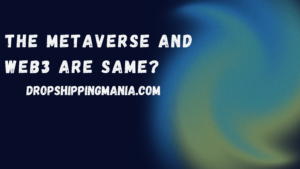Metaverse 2023
The metaverse refers to a shared virtual space, created by the convergence of the physical and virtual world. Here are some researched facts about the metaverse:
Definition: The term “metaverse” was first popularized by science fiction author Neal Stephenson in his 1992 novel Snow Crash. The term refers to a shared virtual space, created by the convergence of the physical and virtual world.
Growth: The meta verse is growing rapidly, with increasing investment and interest from corporations, entrepreneurs, and investors. In 2021, the global meta verse market was valued at $1.1 billion, and is projected to reach $15.8 billion by 2026.
Virtual Reality: Virtual reality (VR) technology is the foundation of the meta verse, allowing users to interact with virtual environments in a seemingly real way. VR is being used in a variety of industries, from gaming to education to health care.
Social Interaction: The meta verse offers opportunities for social interaction, community building, and commerce. Many meta verse plat forms allow users to create virtual representations of themselves, or avatars, and interact with other users in virtual environments.
Potential Benefits: Proponents of the meta verse believe it has the potential to offer a more equit able, sustain able, and efficient way of living, with benefits such as increased global connectivity and collaboration, reduced carbon foot print, and greater economic opportunities.
Concerns: However, there are also concerns about the meta verse, such as the potential for increased social isolation, decreased privacy, and the concentration of economic power in the hands of a few large corporations.
These are some of the key facts and research findings about the meta verse. The field is rapidly evolving, and new developments are expected in the coming years.

Rules Of the Metaverse
The rules of the meta verse can vary depending on the specific plat form or environment. However, some general principles that are often followed in the meta verse include:
Code of Conduct: Most meta verse plat forms have a code of conduct that outlines acceptable behavior for users. This can include rules against harassment, hate speech, and other forms of abusive behavior.
Intellectual Property: Many metaverse platforms have policies in place to protect intellectual property, such as copyrights and trade marks. Some plat forms also allow users to sell and purchase virtual goods and assets.
Privacy: Privacy is an important consideration in the meta verse, and many plat forms have policies in place to protect users’ personal information. This can include measures such as encryption and user control over their data.
Governance: The governance of the meta verse can vary, with some plat forms being centrally controlled and others having a more decentralized structure. The specific rules and regulations can vary greatly depending on the plat form.
User-Generated Content: Many meta verse plat forms allow users to create and share their own content, such as virtual environments, games, and applications. Rules around user generated content can vary, but often include guide lines for quality control and appropriateness.
These are some of the common rules and principles that apply to the meta verse. However, it’s important to keep in mind that these can vary depending on the specific plat form or environment, and new rules and regulations are likely to be developed as the meta verse continues to evolve.

Uses Of Metaverse
The main use of the metaverse is to provide a shared virtual space where people can interact with each other and with virtual environments in a seemingly real way. The meta verse is used for a variety of purposes, including:
Gaming: The meta verse is used for gaming, including multi player games, virtual reality games, and other types of games that take place in virtual environments.
Social Interaction: The meta verse provides opportunities for social interaction, community building, and collaboration. People can create virtual representations of themselves, or avatars, and interact with other users in virtual environments. Commerce: The meta verse is being use as a plat form for commerce, with the potential to allow for more efficient and equit able economic transactions. This includes the sale and purchase of virtual goods and assets, as well as real world products and services.
Education and Training: The meta verse is being use for education and training, allowing for immersive and inter active learning experiences. This includes training for various industries, such as health care, construction, and military, as well as educational games and simulations.
Art and Culture: The meta verse is being use as a plat form for art and culture, providing opportunities for artists, musicians, and other creatives to show case their work in virtual environments. These are some of the main uses of the meta verse. The field is rapidly evolving, and new applications and uses are expect to emerge in the coming years.

Uses Of Metaverse
Web3 and its facts
Web3 refers to the next generation of the internet, characterized by decentralization, increased security, and user control over data. Here are some researched facts about Web3:
Definition: Web3 refers to the next generation of the internet, characterized by decentralization, increased security, and user control over data. The main goal of Web3 is to create a more equit able and open internet, where users have greater control over their online experiences and personal data.
Decentralization: One of the key features of Web3 is decentralization, which means that there is no central authority or organization controlling the network. Instead, Web3 is powere by a network of computers and nodes, making it more resistant to censor ship and other forms of interference.
Security: Web3 is designe to be more secure than previous generations of the internet, with advanced encryption and security protocols in place to protect user data and transactions.
User Control: In Web3, users have greater control over their personal data and online experiences. This includes control over who can access their data and how it is use. As well as the ability to participate in decentralized networks and applications.
Block chain Technology: Web3 is powere by block chain technology, which provides a secure and transparent ledger for recording transactions and data. Moreover Blockchain technology enables Web3 to offer decentralized applications and services that are resistant to censor ship and fraud.
Applications: Web3 has the potential to offer a wide range of applications and services. Moreover including decentralized finance (DeFi), online market places, gaming, and more.

The metaverse and Web3 are SAME?
Now, to answer the second part of the question, the meta verse and Web3 are related but not the same. The meta verse is a shared virtual space, created by the convergence of the physical. And virtual world, whereas Web3 refers to the next generation of the internet. However, the meta verse is expect to be a major component of Web3. Providing a plat form for decentralized applications and services that allow for greater user control and privacy.

The metaverse and Web3 are SAME
NFT and its facts
Non-fungible tokens, or NFTs, are unique, digital assets that are verified on a blockchain network. Here are some researched facts about NFTs:
Definition: Non-fungible tokens, or NFTs, are unique, digital assets that are verified on a block chain network. NFTs can represent a wide range of assets, including digital art, collectibles, music, and even real estate.
Unique and Indivisible: Unlike fungible tokens, such as crypto currencies, NFTs are unique and indivisible, meaning that they cannot be divid or replicated. This makes them ideal for representing one-of-a-kind items, such as rare digital art or collectibles.
Verification on a Block chain: NFTs are verified on a block chain network. Which provides a secure and transparent ledger for recording transactions and data. This enables NFTs to buy, sell and trade in a decentralized and secure manner.
Rising Popularity: NFTs have seen a significant increase in popularity in recent years, with the market for NFTs growing rapidly. This has driven by the increasing recognition of the value of unique digital assets. As well as the potential for NFTs to change the way we think about owner ship and intellectual property.
Use Cases: NFTs have a wide range of use cases, including digital art, gaming, collectibles, and even real estate. For example, NFTs are being use to represent owner ship of virtual real estate in the meta verse. As well as to represent unique digital assets in online games and virtual reality environments.
Provenance and Owner ship: One of the key benefits of NFTs is their ability to clearly demonstrate owner ship and provenance. This is because the owner ship of an NFT is record on the block chain. Providing a clear and secure record of who owns the asset and its history.
Risks: As with any new technology, there are also risks associate with NFTs. This includes the risk of fraud and scams, as well as the lack of regulation and standardization in the market.
These are some of the key facts about NFTs. Moreover the field is rapidly evolving, and new use cases and applications are expect to emerge in the coming years.

For more money making article visit given link:


